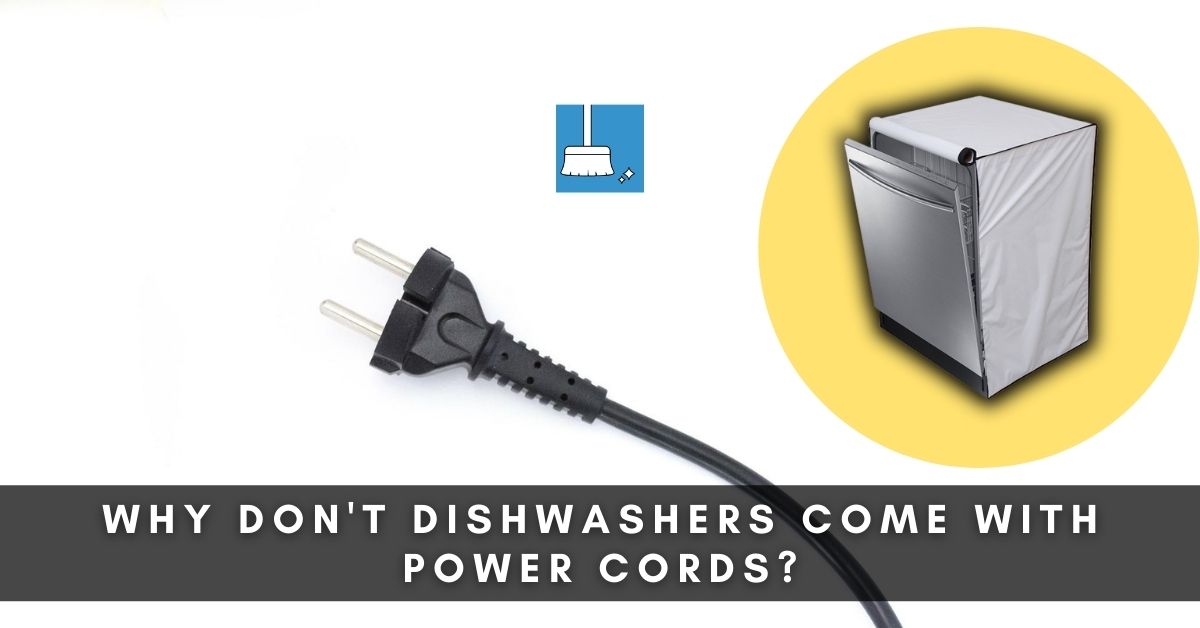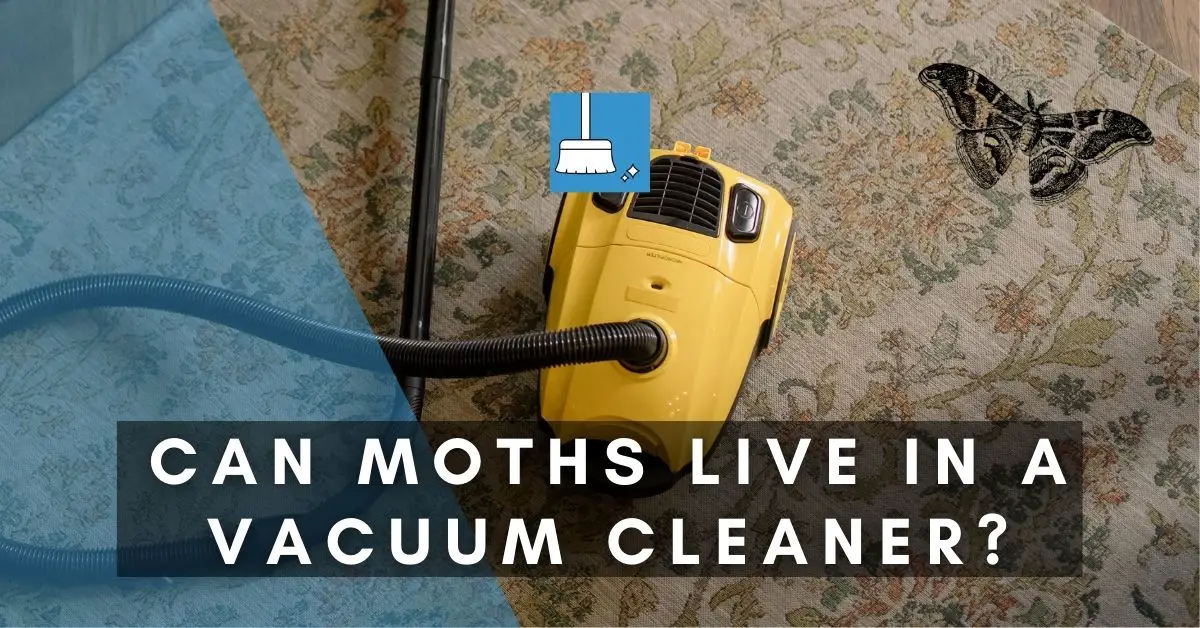Have you been in a situation where you buy a dishwasher expecting to plug it in, only to find that there is no power cord? Or you uninstalled the current one for repairs, only to realize there is no power cord to unplug?
All electrical appliances usually have power cords that are connected to the receptacle to function. A dishwasher operates slightly differently.
This article explains how dishwashers are not like other electrical appliances when it comes to connecting and using the power supply.
Why Don’t Dishwashers Come with Power Cords?
Dishwashers do not come with power cords, simply because dishwashers need to be hardwired as they need high amounts of power to function. A hardwired dishwasher is directly connecting it to the circuit. This is to ensure electrical faults are minimized.
If you cannot find where the dishwasher is plugged in, then it means it is hardwired. This hardwiring is because the dishwasher’s high energy use can cause electric faults at home.
The NEC (National Electric Code) states that it is best practice to hardwire dishwashers.
This article highlights why dishwashers do not come with power cords, the reasons they are hardwired, and the type of power cords needed if you need to use one.
Reasons Why Dishwashers Are Hardwired (No Power Cords)
According to the NEC, dishwashers should be hardwired, to avoid electric faults and accidents. It also depends on your location.
Some locations may have a higher electrical output, so the dishwashers need not be hard-wired in such locations.
Since the dishwashers are hardwired directly and permanently to the electric system of the house, the risk that the circuit will not be able to support the power requirements of the dishwasher is minimized.
Hardwiring dishwashers offers more safety. Power connections can wear and tear, thus increasing the risks of fire and faults.
Hardwiring also offers a ‘neater’ look as the wiring is hidden away, as compared to using power cords.
Power cords can be added to the dishwasher but first, check the dishwasher manual and consult a skilled technician to see if it would be compliant with the NEC.
Disadvantages of Not Having Power Cords
The drawback of hardwiring the dishwasher is that once it is connected to the wires, it cannot be pulled out further than what the wires allow.
It is also difficult to place the dishwasher elsewhere in the kitchen. If the dishwasher is connected via cord and plug, it is easier to uninstall it and move it to another area of the house.
If you buy a dishwasher that needs to be hardwired, you may have to hire a technician to do the connectivity. If you connect it yourself, any wiring errors can pose a risk.
Cord and Plug Dishwashers
The cord and plug option are usually ideal for portable or countertop dishwashers. They are not as powerful as a hardwired dishwasher due to the low volt capacity, so any outlet would be able to support them.
There are some dishwashers that can use the cord and plug option and be installed where a hardwired dishwasher normally is.
The biggest advantage of these dishwashers is that they can be uninstalled easily and placed elsewhere.
Can You Add a Power Cord to a Dishwasher?
Dishwashers are not usually equipped with a power cord. They can be bought separately. If there is a receptacle near where the dishwasher is to be placed, you can connect a power cord to the dishwasher.
Steps to add a power cord:
STEP 1: Disconnect the power supply. Find the dishwasher’s circuit breaker and flip it ‘off’.
STEP 2: The power cord junction box is usually underneath the dishwasher. The junction box is where the electrical wires enter which will be attached to the power cord. Remove the junction box cover with the relevant tools.
STEP 3: You will see black and white wires, and a ground connection (a small hole secure with a screw and bolt).
STEP 4: The power cord will also have black and white wires and the grounding wire.
STEP 5: The strain relief (which comes with the power cord) is used to insert and protect the wires of the power cord by securing the cord to the junction box through a hole in the junction box.
STEP 6: Attach the white wire from the power cord to the white wire of the dishwasher by twisting the wire ends together. Repeat with the black wires.
STEP 7: Tighten the wire cap to each pair of wires. Wire caps ensure there is electrical conductivity with the 2 sets of wires within.
STEP 8: Attach the grounding wire to the inlet in the junction box. The grounding wire will have a little metal loop which is then fastened to the grounding connection with the screw and bolt.
STEP 9: Put all the wires back in the junction box and make sure all the screws are secured tightly.
STEP 10: The cord is now ready to be plugged in.
What Type of Power Cord Do I Need for a Dishwasher?
Dishwashers are usually hard-wired to the circuitry of the house. You may need to attach a power cord if you want to move it to a different location. Before purchasing any power cord, look into the following details and consult an electrician as well.
1- Voltage: The common voltage systems used are 120v or 240v. Buy the one that is suitable for your dishwasher.
2- Amps: Amps control the amount of current flowing to the dishwasher. Large appliances use up to 60 amps.
3- Watts: For a dishwasher, around 1,200 watts of power is needed. Watts is calculated by multiplying amps and voltage.
4- Plug types: For a dishwasher, use the 3-prong cord with 15 amps.
5- Wire-gauge: use a 12-gauge wire for the dishwasher.
Ensure the cord you buy has 3 prongs. This is because the middle prong is the ground plug, which avoids electric shocks.
The outlet for cord and plug dishwasher connections needs to be in an adjacent cabinet for easy access. It must not be behind the dishwasher.
What Power Supply Do I Need for a Dishwasher?
Usually, a dishwasher can use between 1,200 to 2,400 watts. Modern dishwashers are more energy-efficient than older dishwashers.
Tips to reduce electricity consumption:
a) Use a lower temperature setting.
b) If the dishwasher has an energy-saving mode, use it.
c) Air dry dishes if the option is available.
Do All Dishwashers Have to Be Hardwired?
No, all dishwashers are not hard-wired. You can shop around and buy one that comes with the power cord and plug. You can also convert a hardwired dishwasher to a cord and plug unit by purchasing a dishwasher power cord.
However, the risk of the power cord coming into contact with water is high, so it is better to have a dishwasher that is hardwired.
Power cords can also cause electrical fluctuations. This can affect other electric appliances adversely due to power surges. This problem does not occur with dishwashers that are hard-wired.
Are Dishwasher Power Cords Universal?
Generally, most dishwashers do not come with a power cord. This is because it is better to have hardwired dishwashers. If you need to use a power cord, use one that will be compatible with your dishwasher. Consult a technician if you are unsure.
As stated above, the best one is a 3-prong plug. The length of power cords will also vary.
Choose a length that is appropriate for the distance between the dishwasher and the outlet it will be connected to. Where appropriate, the NEC allows a power cord to be between 3ft to 6.5ft in length.
Can You Use an Extension Cord for a Dishwasher?
No, it is not advisable to use an extension cord. Dishwashers consume a lot of power, and if the power cord overheats, it increases the risk of fire. If they are used extensively, they can wear out faster, thus becoming a huge fire hazard.
It is also easy to plug in another appliance in the extension cord where the dishwasher is plugged in. This is also dangerous as the dishwasher itself consumes a lot of power and the cord can overheat.
If you must use an extension cord, the wattage of the dishwasher should match that of the extension cord, otherwise do not use it.
There is also a major risk of the extension cord coming into contact with water.
Avoid using the extension cord at all costs. Move the appliance or use a longer power cord.
CODE for Wiring a Dishwasher
The codes are there to protect the homes and occupants and should be carefully consulted before installing electrical appliances.
The NEC is followed by local codes, but if there are differences, the local code takes preference.
The NEC states that the dishwashers must have their own dedicated volt circuits.
It also states that dishwashers must have GFCI (Ground-Fault Circuit Interrupter) protection. GFCI is a circuit breaker that switches off the electric power in case there is a ground fault. Grounding is directing extra electricity to the ground, to prevent injuries and fire.
The circuit for the dishwasher should be a 15-amp circuit, at 120v. A 15-amp circuit is supplied by a 14/2 NM (nonmetallic) wire with ground. You can also choose to use a 20-amp circuit using 12/2 NM wire with ground.
You must ensure you follow the code, depending on your location.
Also, avoid installing other appliances on the same circuit. The only other appliance you can have on the same circuit is a garbage disposal.
Conclusion
For safety reasons, dishwashers do not come with power cords. They should be hardwired to the electric circuit of the house.
If you do need to replace it with a cord and plug, consult the dishwasher manual as well as a skilled electrician and follow their advice.
Also, ensure the NEC standards are met.





